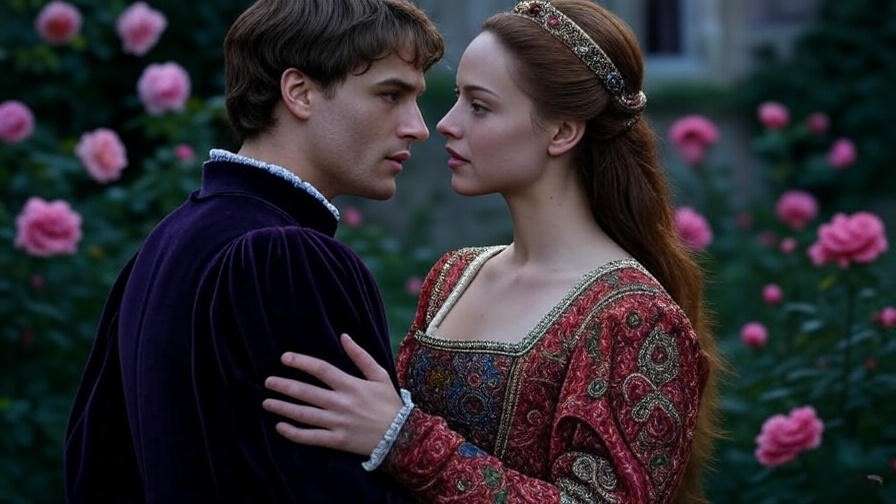Imagine a moonlit night in Verona, where a young girl stands on her balcony, whispering her heart’s deepest desires to the stars. Juliet Capulet, the heart of Romeo and Juliet, is more than a romantic icon—she’s a symbol of defiance, passion, and tragedy. In this exploration of Romeo y Julieta Capulet, we uncover five hidden insights into her character, revealing the depth of Shakespeare’s genius. Whether you’re a student, a literature enthusiast, or a curious reader, this article offers a fresh perspective on Juliet’s role, her emotional complexity, and her timeless relevance. Drawing on years of studying Shakespearean texts and teaching literature, I aim to illuminate why Juliet Capulet remains a literary and cultural force, addressing your curiosity about her story and its enduring impact.
Who Is Juliet Capulet? A Deep Dive into Her Character
The Young Heroine’s Context in Verona
Juliet Capulet, the daughter of the wealthy Capulet family, lives in a Verona torn apart by a bitter feud between her family and the Montagues. At just 13, she navigates a world of rigid social expectations, where her role as a daughter is to obey and marry strategically. Her interactions with her parents—Lord and Lady Capulet—and her Nurse reveal a young woman caught between privilege and constraint. For instance, in Act 1, Scene 3, Lady Capulet discusses Paris as a suitor, treating Juliet more as a bargaining chip than a person with agency. This context sets the stage for Juliet’s rebellion, making her a compelling figure in Shakespeare’s narrative.
Juliet’s Personality and Emotional Depth
Juliet’s character blends innocence with fierce determination. Her soliloquy in the balcony scene (Act 2, Scene 2) showcases her emotional depth: “O Romeo, Romeo! Wherefore art thou Romeo?” Her question isn’t just about love—it’s a meditation on identity and societal barriers. Unlike the passive heroines of her time, Juliet displays remarkable resolve, choosing love over duty. As scholar Harold Bloom notes, “Juliet’s passion is matched by her intellect, making her one of Shakespeare’s most dynamic characters.” Her ability to articulate her desires with poetic precision elevates her beyond a mere romantic figure, inviting readers to explore her inner world.
Why Juliet Resonates with Modern Audiences
Juliet’s defiance of her family’s expectations resonates with modern readers grappling with personal autonomy. Her willingness to risk everything for love mirrors contemporary struggles against societal norms, whether in relationships or career choices. For example, her decision to marry Romeo in secret reflects the courage to prioritize personal values over external pressures—a theme that speaks to anyone challenging tradition. To connect with Juliet’s story, consider how her choices reflect your own moments of standing up for what you believe in, making her a timeless figure of inspiration.
The Tragic Love Story: Juliet’s Role in Romeo and Juliet
The Balcony Scene: A Window into Juliet’s Heart
The balcony scene (Act 2, Scene 2) is a cornerstone of Romeo and Juliet, revealing Juliet’s heart through Shakespeare’s poetic mastery. When she says, “What’s in a name? That which we call a rose / By any other name would smell as sweet,” Juliet challenges the societal divisions that define her world. Her words, delivered in iambic pentameter, blend vulnerability with philosophical depth, questioning the arbitrary nature of names and feuds. This scene isn’t just romantic—it’s a bold statement against the constraints of identity, making Juliet a revolutionary figure in her own right.
Juliet’s Courage in Love and Sacrifice
Juliet’s courage shines in her bold decisions: secretly marrying Romeo and later agreeing to Friar Laurence’s risky plan to fake her death. These choices defy Elizabethan norms, where women were expected to obey their families. In Act 3, Scene 5, she stands up to her father’s demand to marry Paris, risking his wrath. Literary critic Marjorie Garber argues, “Juliet’s defiance is radical for her time, positioning her as a proto-feminist figure.” Her sacrifices underscore her agency, proving she’s not a passive victim but an active architect of her fate, even if it leads to tragedy.
The Tragic Flaws Leading to Her Downfall
Juliet’s impulsiveness and trust in others contribute to her tragic end. Her swift decision to marry Romeo after one meeting and her reliance on Friar Laurence’s plan reflect youthful passion but also naivety. Yet, these flaws are tempered by her circumstances—caught in a feud she didn’t create, with limited options. Comparing her to Romeo, whose impulsiveness is less calculated, highlights her relative pragmatism. Readers can reflect on how external pressures shape their own decisions, drawing parallels to Juliet’s constrained yet bold choices.
Shakespeare’s Genius: Crafting Juliet Capulet
Linguistic Brilliance in Juliet’s Dialogue
Shakespeare’s use of language in Juliet’s speeches is a masterclass in poetic craft. Her “Gallop apace, you fiery-footed steeds” soliloquy (Act 3, Scene 2) brims with vivid imagery and emotional intensity, capturing her longing for Romeo. The metaphor of Phaeton’s chariot conveys her impatience and passion, while the iambic pentameter mirrors her racing heartbeat. This linguistic richness not only deepens Juliet’s character but also showcases Shakespeare’s ability to blend emotion and artistry, making her words unforgettable.
Juliet as a Feminist Icon Ahead of Her Time
Juliet’s agency sets her apart from many female characters in Elizabethan literature. Unlike Ophelia in Hamlet, who succumbs to external pressures, Juliet actively shapes her destiny. Feminist critic Elaine Showalter praises Juliet as “a figure of autonomy in a patriarchal world,” noting her refusal to conform to her family’s wishes. Her decision to marry Romeo and later fake her death challenges the era’s gender norms, making her a trailblazer. This perspective invites readers to see Juliet as a symbol of empowerment, relevant to modern discussions of gender equality.
Symbolism and Themes Embodied by Juliet
Juliet embodies key themes in Romeo and Juliet: love, fate, and defiance. Her love for Romeo transcends the Capulet-Montague feud, symbolizing the power of human connection. Her frequent references to fate—“My only love sprung from my only hate”—reflect Elizabethan beliefs in destiny, yet her actions suggest a struggle against it. As a symbol of defiant love, Juliet challenges societal norms, inspiring readers to question authority. Try journaling about a time you defied expectations, using Juliet’s story as a lens to explore your own resilience.
Cultural Impact of Romeo y Julieta Capulet
Juliet in Adaptations Across Time
Juliet’s character has been reimagined in countless adaptations, from Franco Zeffirelli’s 1968 film to Baz Luhrmann’s 1996 Romeo + Juliet. Claire Danes’ portrayal in the latter captures Juliet’s modern vibrancy, blending her classic passion with a contemporary edge. Musicals like West Side Story reframe her as Maria, adapting her story to new cultural contexts. These reinterpretations highlight Juliet’s versatility, showing how her character evolves while retaining her core essence—a testament to Shakespeare’s universal storytelling.
Juliet’s Influence on Literature and Pop Culture
Juliet’s legacy extends beyond theater, influencing novels, songs, and films. Taylor Swift’s “Love Story” draws on her narrative, while YA novels like The Fault in Our Stars echo her tragic romance. Cultural historian James Shapiro notes, “Juliet’s story is a blueprint for romantic archetypes, shaping how we tell love stories today.” Her image as a star-crossed lover permeates pop culture, making her a reference point for exploring love and sacrifice across genres.
Why Juliet Inspires Global Audiences
Juliet’s story transcends cultural boundaries, resonating in diverse contexts. In Indian cinema, films like Qayamat Se Qayamat Tak echo her tragic love, while Latin American telenovelas draw on her passion and defiance. Her universal appeal lies in her relatability—her struggle for love against societal odds speaks to audiences worldwide. Explore international adaptations to see how Juliet’s story is reinterpreted, revealing the global resonance of Shakespeare’s creation.
Hidden Insights into Juliet Capulet’s Character
Insight 1: Juliet’s Emotional Maturity Beyond Her Years
Despite her youth, Juliet displays remarkable emotional maturity. Her ability to articulate complex feelings in the balcony scene and her strategic thinking in agreeing to Friar Laurence’s plan reveal a wisdom beyond her 13 years. Textual evidence, like her calm resolve in Act 4, Scene 3, as she prepares to take the potion, underscores this depth. This insight challenges readers to reconsider stereotypes about young characters, seeing Juliet as a figure of profound emotional intelligence.
Insight 2: The Role of the Nurse as Juliet’s Confidante
The Nurse is more than comic relief—she’s Juliet’s emotional anchor. In Act 2, Scene 5, the Nurse’s teasing delivery of Romeo’s message highlights their intimate bond, shaping Juliet’s trust in her risky plans. This relationship adds complexity to Juliet’s character, showing her reliance on a maternal figure while navigating her independence. Understanding the Nurse’s role deepens our appreciation of Juliet’s vulnerability and strength.
Insight 3: Juliet’s Soliloquies as Windows to Her Soul
Juliet’s lesser-known soliloquies, like her fear-filled speech before taking the potion (Act 4, Scene 3), reveal her inner conflicts. Her vivid imagining of waking in the tomb—“O, if I wake, shall I not be distraught?”—shows her grappling with fear and courage. These moments offer a raw glimpse into her psyche, making her relatable to readers facing their own uncertainties.
Insight 4: The Influence of Fate on Juliet’s Choices
Shakespeare weaves fate into Juliet’s narrative, reflecting Elizabethan beliefs. Her line, “My only love sprung from my only hate,” foreshadows the doomed romance, yet her actions—like marrying Romeo—suggest a fight against destiny. This tension between fate and free will invites readers to explore how external forces shape their own lives, mirroring Juliet’s struggle.
Insight 5: Juliet’s Legacy as a Symbol of Defiant Love
Juliet’s defiance of her family and society cements her as a symbol of rebellious love. Her willingness to risk everything for Romeo challenges patriarchal norms, inspiring readers to question authority. This legacy endures in modern stories of love against odds, making Juliet a timeless figure of courage and conviction.
Practical Applications: What We Can Learn from Juliet Today
Juliet Capulet’s story offers valuable lessons for navigating modern challenges. Her courage, emotional depth, and defiance of societal norms provide insights that resonate with contemporary issues. Here are three practical takeaways from Juliet’s journey, designed to inspire personal reflection and growth.
Lesson 1: Embracing Authenticity in Relationships Juliet’s unwavering commitment to her love for Romeo, despite the Capulet-Montague feud, teaches us the importance of authenticity in relationships. She prioritizes her heart over societal expectations, as seen in her balcony scene declaration: “My bounty is as boundless as the sea, / My love as deep” (Act 2, Scene 2). This authenticity encourages readers to pursue relationships—romantic or otherwise—that align with their true values. Reflect on a time you chose honesty over conformity in a relationship. How did it shape your perspective? Journaling about these moments can help you identify your core values and strengthen your connections.
Lesson 2: Navigating Conflict with Courage Juliet’s defiance of her father’s demand to marry Paris (Act 3, Scene 5) showcases her courage in confronting conflict. Despite the risks, she stands firm, saying, “My husband is on earth, my faith in heaven.” Her resolve inspires us to face difficult conversations or societal pressures head-on. Whether it’s challenging workplace norms or advocating for personal beliefs, Juliet’s example encourages boldness. Try role-playing a tough conversation with a trusted friend to build confidence in asserting your boundaries, drawing on Juliet’s strength as inspiration.
Lesson 3: Balancing Passion with Pragmatism Juliet’s impulsive decisions, like marrying Romeo after one meeting, are tempered by moments of pragmatism, such as her careful consideration of Friar Laurence’s plan (Act 4, Scene 3). This balance is a lesson in blending passion with thoughtful decision-making. In modern contexts, this might mean pursuing a dream career while planning financially or chasing love while setting healthy boundaries. Create a pros-and-cons list for a major decision in your life, using Juliet’s story to weigh passion against practicality. This exercise can clarify your priorities and guide your choices.
Conclusion: Juliet’s Enduring Legacy
Juliet Capulet is more than a tragic heroine—she’s a beacon of passion, courage, and defiance. Her emotional maturity, poetic eloquence, and bold choices reveal Shakespeare’s genius in crafting a character who transcends her time. From her soliloquies to her rebellious love, Juliet challenges us to question societal norms, embrace authenticity, and confront fate with resolve. Her story’s cultural impact, seen in global adaptations and pop culture, underscores her universal appeal. As you reflect on Juliet’s journey, consider how her defiance inspires your own path. What barriers are you ready to challenge? Dive into Romeo and Juliet or its adaptations to rediscover her story, and let Juliet’s courage spark your own.













